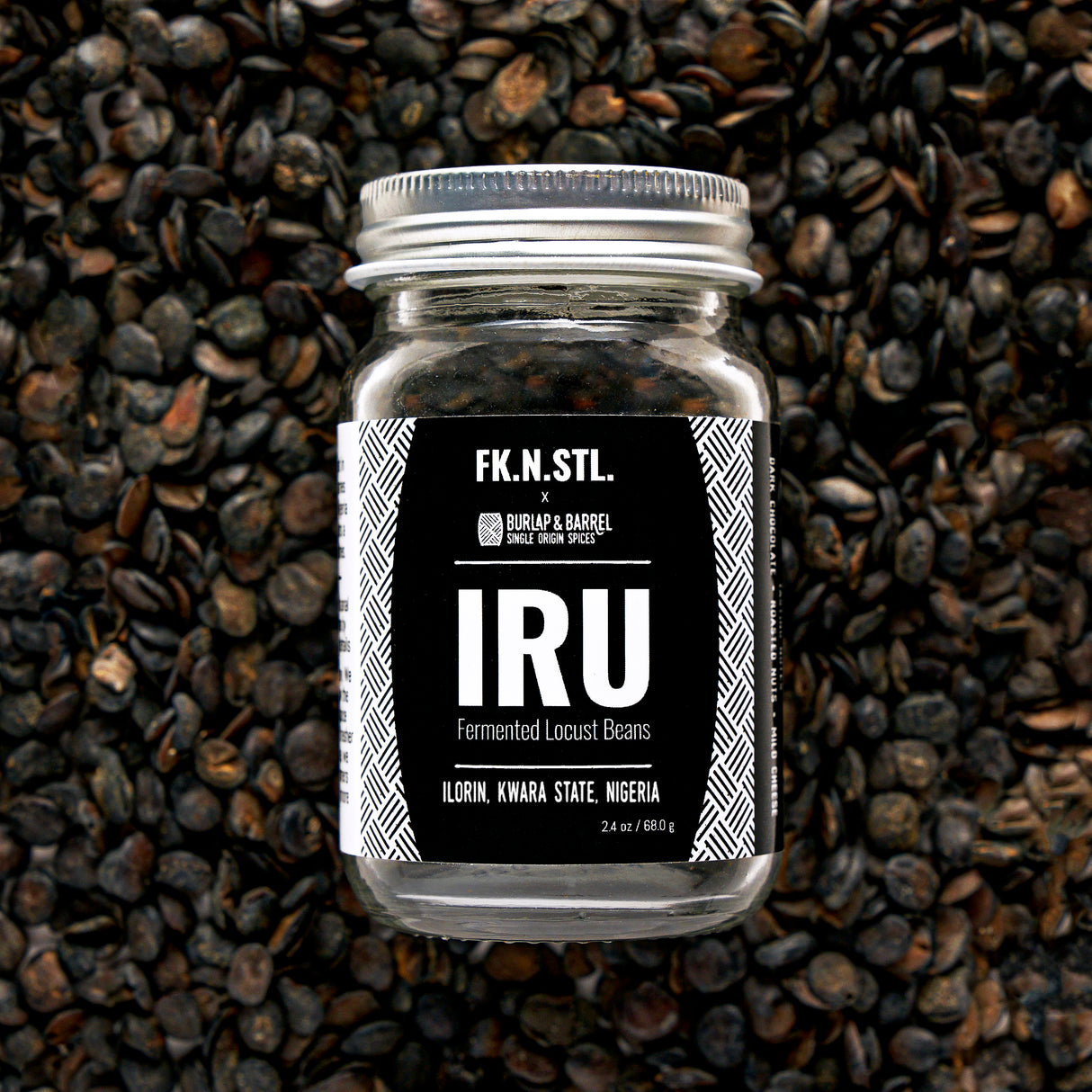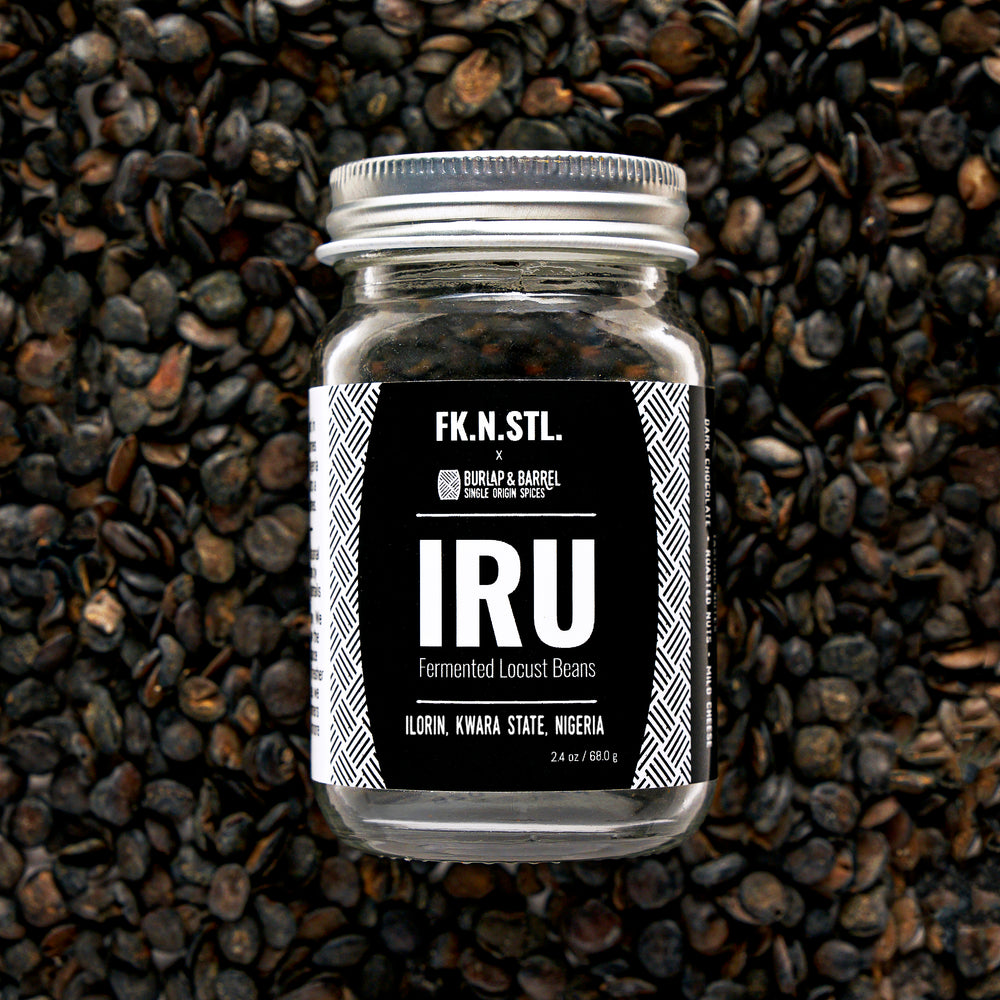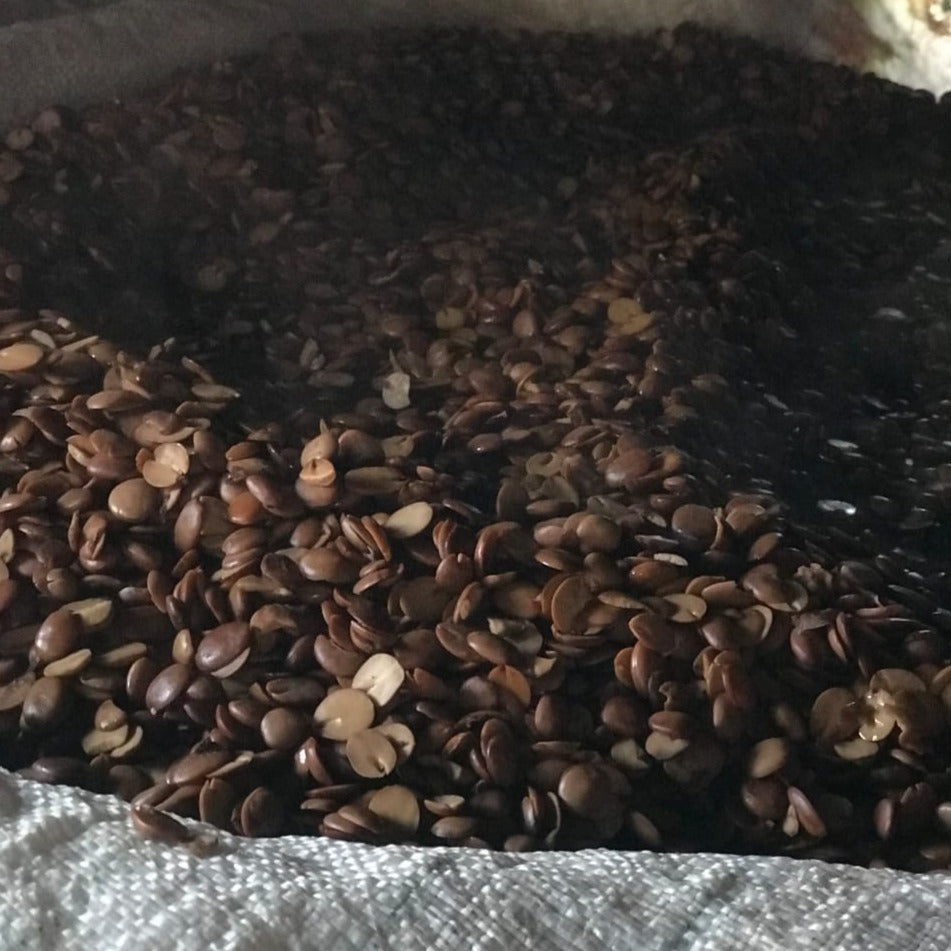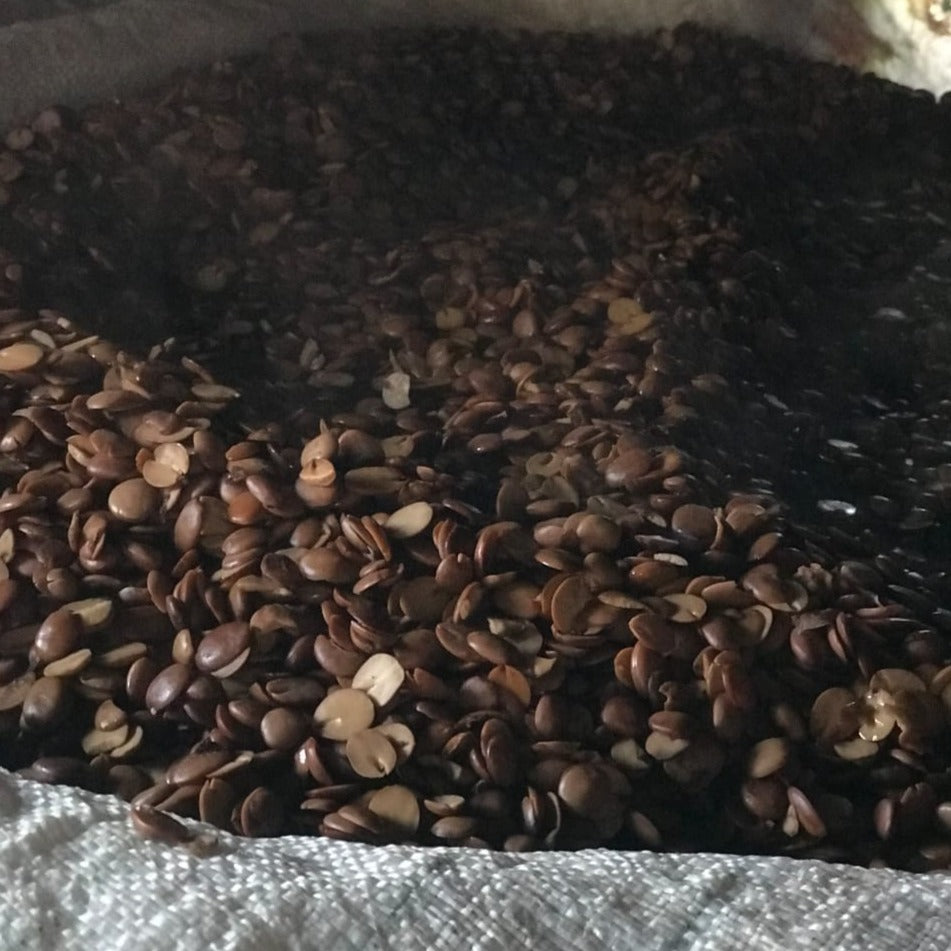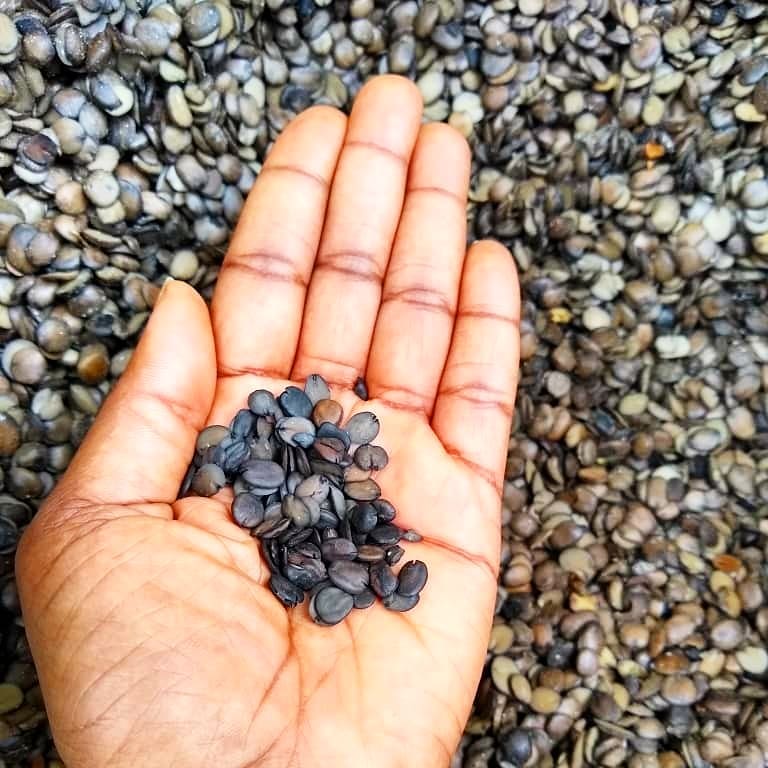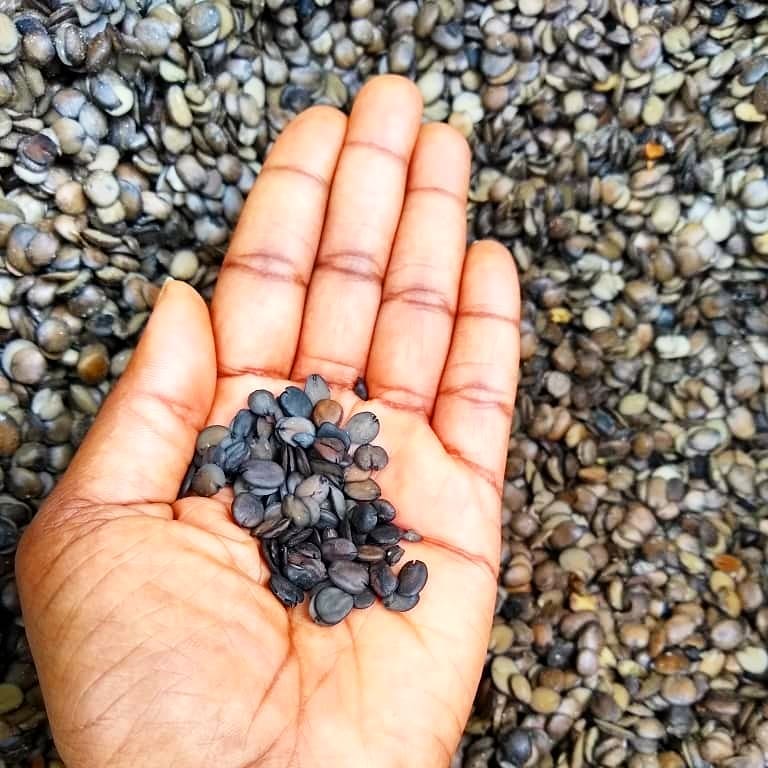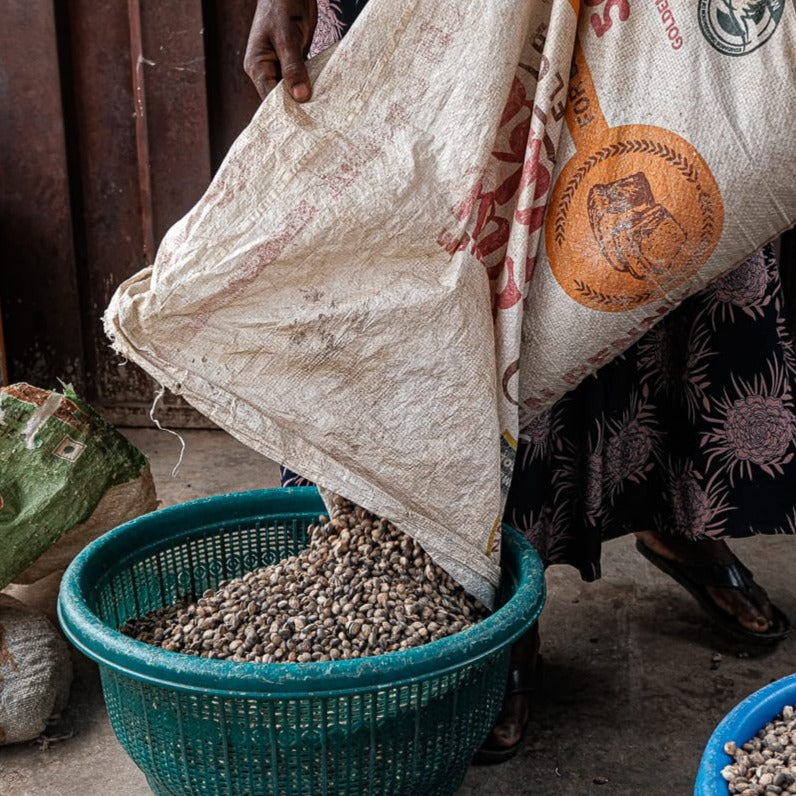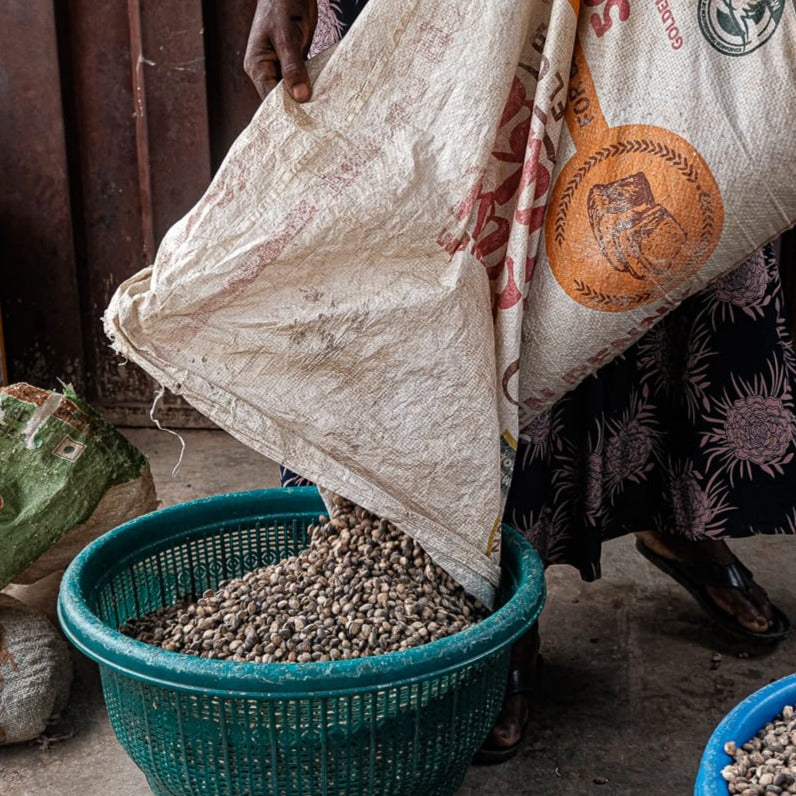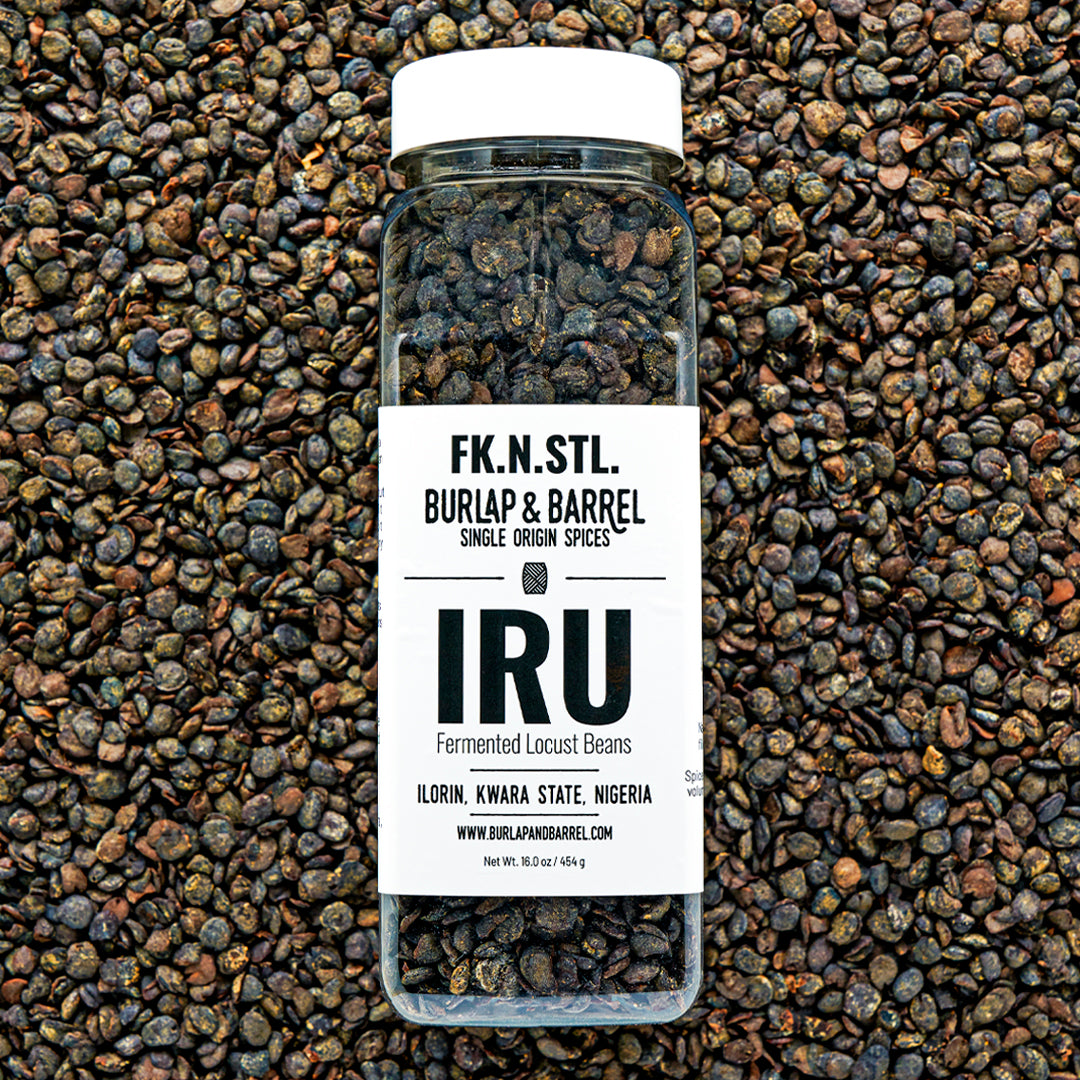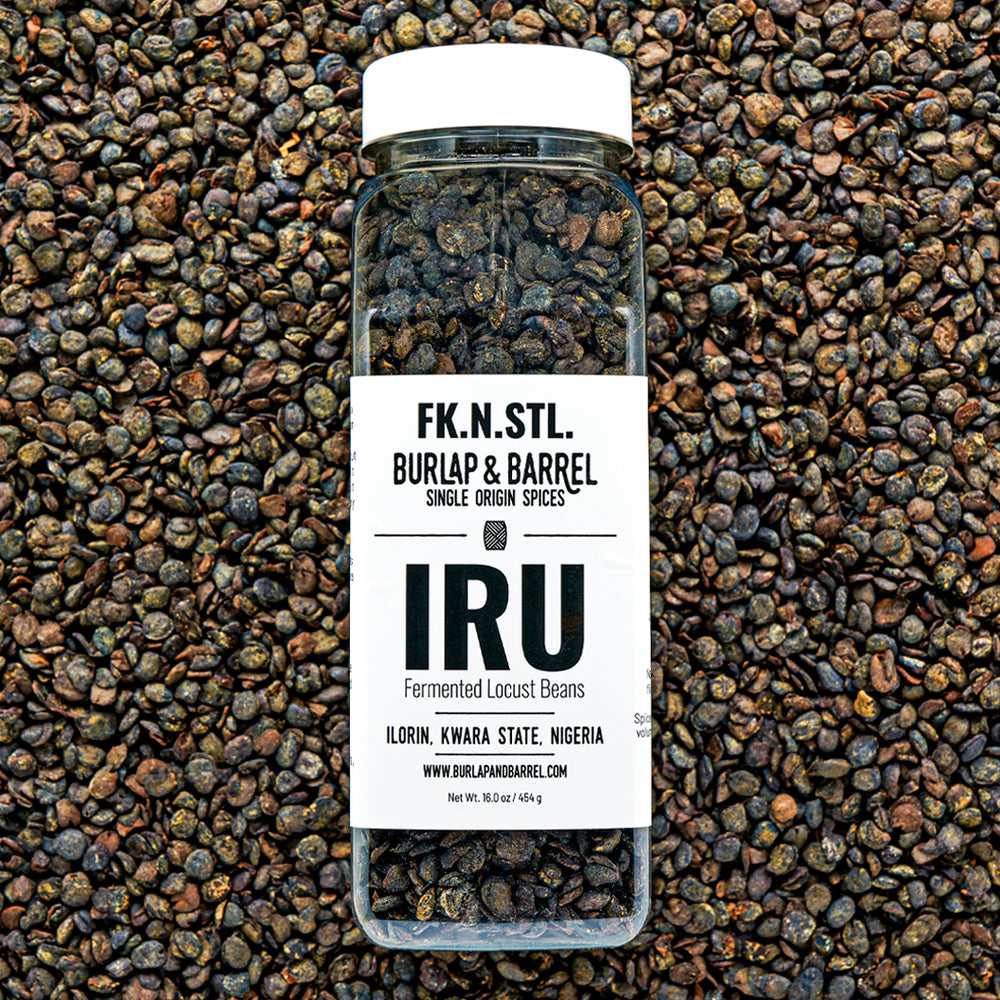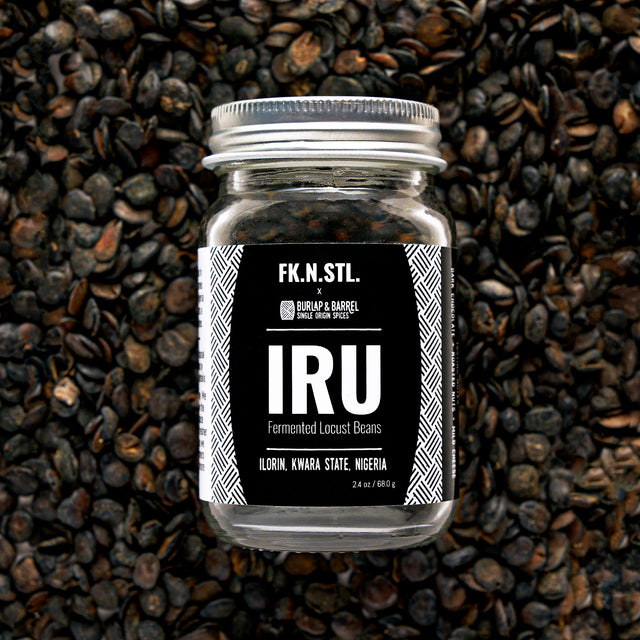Iru (Fermented Locust Beans)
Deep umami flavor, funky and savory, versatile.
Iru (Fermented Locust Beans) - 2.4 oz glass jar is backordered and will ship as soon as it is back in stock.
Why Burlap & Barrel?
Single origin spices sourced directly from small farms
Over 12,000 5-star reviews
Guaranteed to wow you or we'll replace
Iru, or fermented locust bean, is a popular condiment in West African cooking. Rich in protein and fats, it imparts a deep umami flavor to savory and sweet dishes. The complex flavor is somewhere in between chocolate, miso, and cheese. This ingredient goes by a variety of names depending on the region, but the Yoruba people of Nigeria call it Iru, and it has been used for centuries across West Africa for its delicious and healthful properties.
Today, it's at risk of disappearing from kitchens, and we want to make sure you get to know this beautiful spice, which is perfect for umami-rich stews, sauces and bean dishes. Despite its wide applications across West African cuisine, it's still surprisingly difficult to find in the US, especially in dry bean form.
Highlights
Ingredients
Fermented locust beans (Parkia biglobosa)
Cooking tips
- Use as you would dried mushrooms or other dried natural sources of glutamates — soak in hot water to soften, or add to soups and stews.
- Add iru as an aromatic at the beginning of the cooking process to sautéed dishes, along with garlic, onions, etc.
- Use iru instead of MSG or bouillon cubes in West African (and other) recipes.
Sourcing
We've partnered with Tunde Wey and his brand, FK.N.STL, to source this incredible ingredient from women producers in Nigeria's Kwara State, with sourcing and processing support from Kasher Organic Farms. The producer in the pictures is Mommy John.
"For centuries Nigerians have used indigenously fermented seasonings and condiments to imbue their foods with rich complex flavor. Different ethnic groups developed myriad techniques to turn seeds and stems into pungent and powerful pastes and pellets, transforming innocuous ingredients into delicious meals. In 1969, Nestle entered the Nigerian market, and the ensuing period has seen artisanal fermented condiments, like Iru, replaced with factory-produced, soy-based bouillon cubes".
"Iru, fermented locust beans, is a disappearing condiment, a victim of Neo Colonialism. Disappearing condiments are indigenously produced condiments being displaced from kitchens, dining tables, recipes and dishes by produced products from global brands."
Locust beans grow in long, green pods from the branches of the Parkia biglobosa tree. The tree itself fixes nitrogen in the soil, and grains and other crops are often planted around the base of the tree to take advantage of the richer soil and protection from the sun that it provides. The fresh beans are surrounded by a yellow pulp, which is sweet and tart and is an important source of vitamin C. Other parts of the tree, including the bark and leaves, are also used medicinally.
After the pods are harvested, the inner dry seeds are boiled to soften the hulls, which are then removed by pounding them in a wooden mortar with sand. The beans are washed and boiled again, then packed into a calabash gourd lined with ash, which is wrapped with leaves to ferment for 24–36 hours. There are several methods for making finished iru, including a wet preparation and mashing the beans into cakes, but ours is a style called iru woro, where they are sun-dried as loose beans.
In some styles, the locust beans are combined with soy beans, melon seeds, pumpkin seeds or sesame seeds. Ours is made with only locust beans.
Photo credit: Francis Beloved

